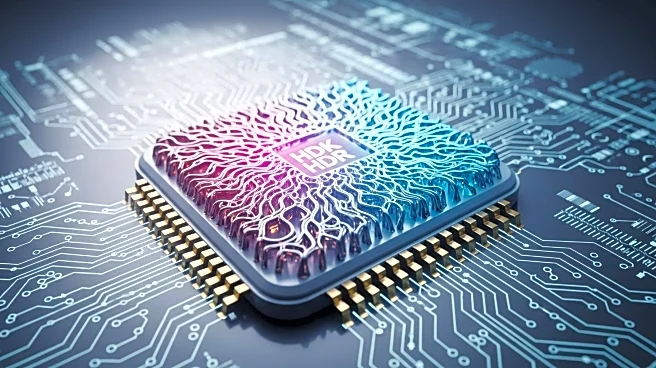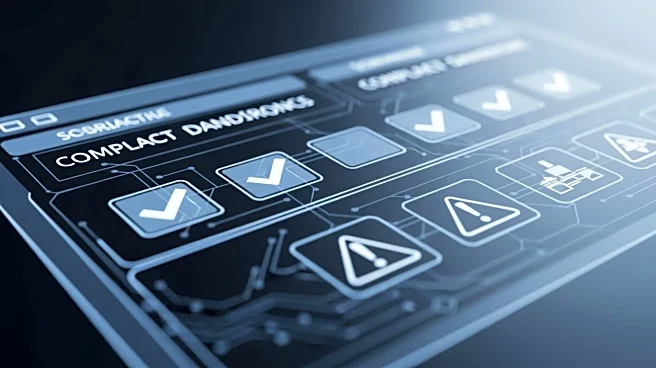What's Happening?
Researchers in Switzerland are advancing the field of biocomputing by creating computers powered by living human cells. The process involves using stem cells derived from human skin cells to create neurons, which are then developed into clusters called organoids. These organoids can be attached to electrodes, allowing them to function as mini-computers. The initiative, led by Dr. Fred Jordan at FinalSpark, aims to replicate aspects of artificial intelligence learning while using significantly less energy than traditional methods. Despite the progress, challenges remain, such as keeping the biocomputers alive without blood vessels to supply nutrients.
Why It's Important?
The development of biocomputers represents a significant shift in computing technology, potentially offering more energy-efficient alternatives to silicon-based systems. This innovation could impact various sectors, including data centers and AI research, by providing new methods for processing information. However, ethical concerns arise regarding the use of human cells and the implications of creating living machines. The technology also poses questions about the future of computing and the role of biological systems in technological advancements.
What's Next?
As research continues, scientists aim to improve the longevity and functionality of biocomputers. The focus will be on overcoming current limitations, such as the lack of blood vessels in organoids, which affects their survival. Further studies are needed to understand the full potential and limitations of biocomputing. The field may also see increased collaboration with AI researchers to explore complementary uses of biocomputers alongside traditional silicon-based systems.
Beyond the Headlines
The ethical dimensions of biocomputing are profound, as the technology blurs the line between living organisms and machines. This raises questions about the moral implications of using human-derived cells in computing and the potential consequences of creating sentient machines. The long-term impact on society and culture could be significant, as biocomputing challenges existing notions of life and technology.









